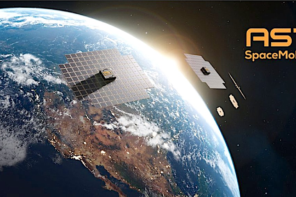In 1776, John Adams — a Founding Father and future President — wrote that the fight for American independence was sparked by the British right to search houses without justification. Adams saw the British searches as unjustified violations of privacy and an infringement on the rights of the citizens of the Thirteen Colonies.
Nearly 250 years later, the war against privacy wages on, albeit in a separate realm — personal information and intellectual property. From concerns over IP attacks from foreign countries, to public outrage following the Cambridge Analytica data scandal, it is evident that privacy concerns have not faded. However, despite the prominence of privacy concerns in the media and public forum, numerous technological advancements have coerced us into conceding our personal privacy. Online banking, location services, and social media relationships have so seamlessly integrated into our lives that it becomes difficult to live without them. But, of course, there are tradeoffs. As technology becomes cheaper and more integrated, the cost of transaction will not be monetary, but instead personal information — an agreement we passively accept. The exponential increase of technological integration has culminated — for the time being — in the form of home assistants like the Google Home, Amazon Echo, and Facebook Portal.
Dubbed by Google as “the ultimate help,” home assistants are application programs capable of understanding and registering natural language voice commands. They are seamless creatures that hide in the backgrounds of our kitchens and living rooms, patiently waiting for their next instructions. Despite their quirkiness and ease-of-use, a lot of intricate technology goes into their functioning, which registers and stores much of the users’ information, a feature often gone unnoticed. For instance, when we order a product from Amazon via a home assistant, it is natural to focus on product and shipment details and easily dismiss privacy concerns. So long as the process is seamless, easy, and even fun, our only concern is when the order will arrive, not how. That ‘how’ is very important; it is what allows the home assistant to start understanding mood, personality and preferences.
All of your conversations with a home assistant are transformed and encrypted into information bits that are stored on the “cloud.” As the amount of information stored becomes larger and larger, the more capable your home assistant is to determine the type of person you are. It is analogous to meeting somebody for the first time: in the beginning, you do not know much about their tendencies, what they like and don’t like, or what motivates them. But as you get to know them better, a personality begins to emerge and you begin to understand their feelings, passions, and ambitions. As George Washington University Law Professor Paul Rosenzweig remarks, “If I know you go to the gym, I know something about your body and yourself. If I know you go to the AA meeting every Wednesday, I know something about your past.” The longer you know them, the more predictable they become. Bringing this example back to home assistants, the same is true about your information that is stored in the software’s cloud. Before long, the cloud will know if you have a family, whether you are religious, and which political stance you lean towards.
All of your conversations with a home assistant are transformed and encrypted into information bits that are stored on the ‘cloud.’ As the amount of information stored becomes larger and larger, the more capable your home assistant is to determine the type of person you are.
While this sensitive information is not inherently harmful, it can be dangerous when placed in the hands of corporations whose actions are not carefully regulated and data not always secure. For this very reason, some experts believe that these products contribute to the normalization of surveillance. Though this claim may be a reach for now, it certainly points us in the direction technology appears to be heading. While Amazon or Google may not tamper with your personal information, hackers are not subject to those same rules. Shortly after its release, the Google Home Mini experienced a bug that allowed hackers to tap into a reporter’s home for many hours, recording dozens of professional and personal conversations. Perhaps even more dangerous than wiretapping is the risk of hackers accessing your assistant’s cloud, which may contain blackmail material, credit card numbers, or humiliating disclosures out of the stream of speech they are capturing.
The storage of personal information on your home assistant’s cloud speaks to a broader discussion about our willingness to compromise personal privacy. Some of the information stored on our phones, laptops and tablets is as trivial as grocery lists, but more sensitive information exists as well, including health records and Social Insurance Numbers. While the wave of technological innovation brings prosperity, connectivity and convenience, we must refrain from tacitly surrendering our all-important right to privacy. Although it’s a fanciful suggestion to eradicate technology from our lives, we can all strive to be more aware of where our information is stored and how it is used. It appears that Google and Amazon have found a clever way to enter the homes of millions of people, and this time, John Adams is not here to stop it.








